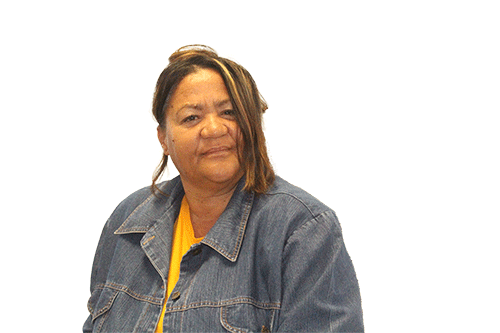GIBEON – For the current financial year, the Gibeon village council received N$3 000 to run its affairs, something locals attributed to political differences between central government and the Landless People’s Movement party.
With a majority of local and regional council seats under its belt in the two southern regions– Hardap and //Kharas – the LPM effectively controls the south.
However, urban and rural development minister Erastus Uutoni said the allocation to Gibeon is not influenced by the politics of the day.
“We do not allocate money based on who is ruling. We have a lot of factors that drive the allocation of funds. Firstly, we look at the structures and needs of each local authority. We then allocate based on those needs, and the performance of the council. We do not allocate money to the councillors who are politically-affiliated, but to the communities in the country,” he told New Era upon enquiry.
He added that the decision to allocate N$3 000 only was prompted by the inactions of the council, which failed to use the money they received in previous years.
Uutoni explained that during the 2021/2022 financial year, the ministry allocated an amount of N$2 million to Gibeon, of which only N$522 943 was utilised. The rest was returned to Treasury.
Similarly, in the following financial year – 2022/2023 – the council received N$407 300, and only utilised an amount of N$229 231.
Defending the current allocation decision, Uutoni stated: “This year, based on their performance, we have decided to allocate them N$3 000 because there were no projects identified for development, and we channeled the money to other councils which have urgent matters and are performing”.
He further clarified that they have received only two invoices from them.
“One has an amount of N$137 800, while the second one has N$234 508. We will pay for those receipts during the [current] financial year, but that does not mean if we give them N$3 000 this year, it will be the same next year. No! Money will be increased based on their needs and projects identified for development,” he stated.
Development
To the contrary, development in the southern village of Gibeon is hamstrung by a lack of available land, formal ownership and financial constraints.
This was revealed by Shanon Bezuidenhout, the chairperson of the Gibeon village council’s management committee when New Era visited the Hardap region recently.
In no uncertain terms, she said there is no formal land for the council to develop new residential and business erven.
“This is because the existing erven are fully occupied, severely restricting the growth of meaningful properties in the town,” Bezuidenhout said.
The politician expressed deep concern, and called for immediate intervention to address these challenges and unlock the full potential of the village for the benefit of its residents and businesses.
Bezuidenhout admitted that the development of the town is still problematic, mostly because the majority of erven have been allocated through permission to occupy or lease agreements, leaving the council with no clear framework for land ownership.
“At present, Gibeon lacks formal land ownership, making it imperative to create more residential and business erven. The existing structures are owned by occupants, while the land still belongs to the village council. This has led to a loss of income for the council, as the land has never been sold and transferred to respective households,” she noted.
Bezuidenhout highlighted that the current situation has hindered any planning, surveying or infrastructural development for new erven. Despite initially planning to develop over 400 erven, the lack of available land remains a significant obstacle.
Deeds
Another critical challenge arising from the lack of formal land ownership is the inability of residents to obtain full title deeds. This restriction prevents them from using their properties as collateral when applying for mortgages or business loans from banks, further impeding economic growth.
“The village council’s revenue is significantly impacted as we cannot legally levy rates and taxes on property owners without proper ownership documents. Currently, the council’s income is solely derived from service sales, such as for water and electricity,” added Bezuidenhout.
Furthermore, the ministry’s budgetary provision to the council is not adequate to meet the council’s needs.
However, the council has decided to proceed with creating 400 erven in phases, with budgetary provisions set for the next financial year, subject to the urban and rural development ministry’s subsidy.
Bezuidenhout stressed the urgency of the situation, as both residential and business erven are already occupied, leaving no room for expansion.
For the required layout planning and town establishment of the new erven, an estimated cost of N$500 000 has been projected, while planning, surveying and the necessary infrastructural development would require approximately N$ 5 million.
– ljason@nepc.com.na


